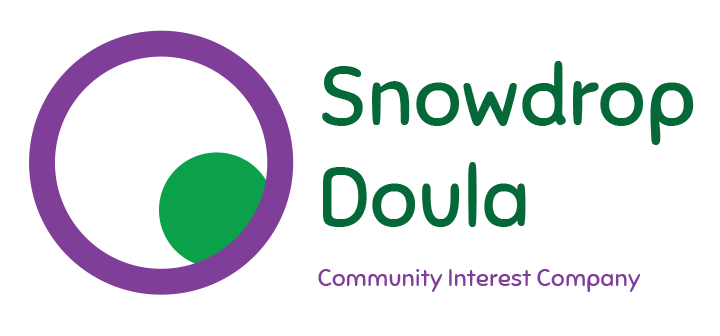As the coronavirus pandemic hits everyone in the world, we, at Snowdrop Doula Community Interest Company, reflect on some on the things we are experiencing in supporting women and families as they navigate their pregnancy, birth and life with a newborn.
I support women and families through the perinatal period as a Psychotherapist and Doula. I also manage a team of paid Doulas and volunteers, working with all complexities and families that one can think of.
With the current global pandemic, the same concerns are being expressed by all who make contact. Women are concerned about their pregnancy and how safe it is to be going anywhere. New parents are concerned around going out of the house as, they feel, the baby could pick up the virus and become seriously ill. There appears to be a lot of confusion about the rules and each day this seems to change and cause further confusion. Women want reassurances and this does not seem to be available which heightens anxiety. As a Doula and psychotherapist, I am acutely aware of the impact of stress in pregnancy and the impact this can have on the family and the baby and supporting families through a stressful time where some stresses are currently unavoidable gives a new challenge for all. Many are finding that knowing they are not alone, and things cannot be changed, gives them a sense of acceptance and calmness. Which reminds me of the process of grief. It appears society is going through a period of collective grief. Perhaps mourning patterns of life and adapting to new patterns
Accepting things that you would not usually accept is an interesting concept, I find. Usually we would look at challenging policy that may not fit with own beliefs for birth and parenting. There seems to be a shift in that at the moment and families are accepting many things they would not normally. A concern here is that there seems to be a collective coercion. Which leads to an ethical question around is coercion ok in some instances?
With homebirths no longer being supported in many trusts, many families are either having to birth in hospital or opt for an unassisted birth. Neither of which are the preference of the family. Again, this is putting additional stress onto the family as they rethink the best for them. A professional reflection on this leads me to think about how much autonomy and choice families have in pregnancy, birth and parenting at any other time. Choices are always based upon the information we have at that time. If some options are removed how can a person choose that and therefore is full choice and autonomy ever, in reality, an option?
Locking down pregnant women for 12 weeks, as per government guidance as I write this, would normally seem hugely immoral and unethical. Yet society has now accepted this. Families have had autonomy removed in most things within the global pandemic and we accept that as “the greater good”. In conversations with families this felling of lack of control and autonomy is a common theme, they feel they cannot control their lives. Conversations, mostly, are around finding the little things they can remain in control of. Such as what they do in their own home. Goal settings and routine are things that families would like at this moment as it seems usual routines are stopped right now. Adjusting to the new normal.
In speaking with our Doula staff, we are having conversations around what is “essential support”. We can no longer support in hospital at birth. Staff are concerned how long this will last. Working with those who have requested Doula support for various reasons, they deem our service as essential. Both our own outcomes and research shows the huge difference a Doula can make to families. I would argue that Doulas and Counsellors/ psychotherapists are essential for many families and our families tell us we are. It seems we are temporarily essential to promote wellbeing in normal situations and even more so in unprecedented situations. To support in empowerment and resilience, or whatever word fits.
I have received messages from many other services (including those within the NHS) working with families that are disappointed in our service being limited at births and in the community at the moment and they feel this is an oversight as the stretched services struggle to cope usually anyway. We have made contact to offer ourselves under the volunteer scheme so families can remain supported. In the meantime, we have had interest in video support at births and have launched a national Doula Helpline to help with this. This is proving popular.
In my experiences in having daily conversations with families and staff working with families, there are common concerns. Concerns around autonomy and choice, own health, partners in the hospital. With choices and options now removed under policy and law there is a huge restriction on human autonomy under the thought of public health. Some conversations have been around removing he rights of some to protect others in a public health pandemic. There are no answers right now.
In usual circumstances it would be wise to seek to change things we are uncomfortable with. Some would argue that we should not simply accept anything we are uncomfortable with, ever. Right now, it seems that acceptance of the situation is bringing comfort to many and that is key. Informed choice can continue to be explored within the realms of current guidance, policy and law and families, and birth workers, can strive to find something within that that suits the induvial.
These are not usual times and we can continue to watch, challenge, reflect and choose what is best. We are all navigating new ways of working and new ways of being.
Michelle Bromley-Hesketh
